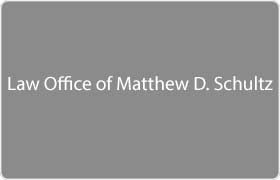Cocoa Beach RICO Act Lawyer, Florida, page 3
Sponsored Law Firm
-
 x
x

Click For More Info:
-
Law Office of Matthew D. Schultz
495 Grand Blvd. Suite 206 Miramar Beach, FL 32550» view mapAccident & Injury Law Over 25 Years of Experience
Mr. Schultz is an accomplished lawyer that has over twenty-five years of legal experience in accident & injury matters.
800-960-5971
Not enough matches for Cocoa Beach RICO Act lawyer.
Below are all Cocoa Beach Criminal lawyers.
John C. Murphy
Income Tax, Immigration, Estate, Employment, Criminal
Status: In Good Standing *Status is reviewed annually. For latest information visit here Licensed: 43 Years
Kristen M. Bennett
Civil Rights, Criminal, Family Law
Status: In Good Standing *Status is reviewed annually. For latest information visit here Licensed: 8 Years
Kory Andrew Pyles
Personal Injury, Administrative Law, Criminal
Status: In Good Standing *Status is reviewed annually. For latest information visit here Licensed: 11 Years
Parker Richard Jacques
Criminal, Government
Status: In Good Standing *Status is reviewed annually. For latest information visit here
Charles Eugene Earnhardt
Industry Specialties, Criminal, Accident & Injury
Status: In Good Standing *Status is reviewed annually. For latest information visit here Licensed: 38 Years
 Matthew Schultz Saint Cloud, FL
Matthew Schultz Saint Cloud, FL Practice AreasExpertise
Practice AreasExpertise